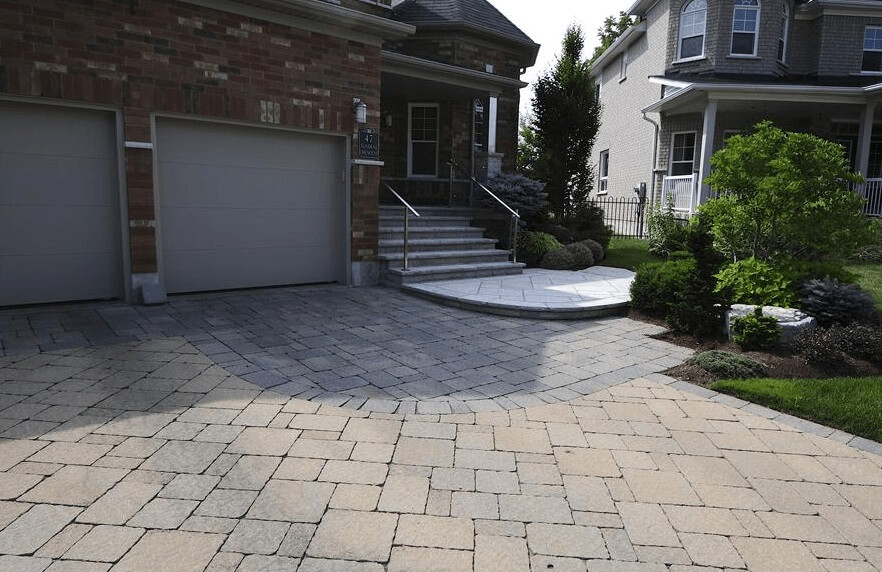The driveway is the very first impression that someone makes on the house makes on the outside. The driveway not only helps to provide a place for people to park their cars, but it also enhances the house’s appearance from the street. The choice of material for your driveway should be taken seriously because it can affect how long it will serve its purpose, how much maintenance it will need, and even the value of your home.
Pros and Cons of Asphalt Driveways
Asphalt driveways have been the most common across homes for a long time. Asphalt is less expensive than concrete slabs or other materials.

Asphalt pathways indeed have some drawbacks, even though they are useful. One of their main problems is that they may crack through time, more so in places that are harshly weathered. Sealing should be done often so water cannot enter and cause more damage. Another issue related to asphalt driveways is that they are pretty limited in terms of design options. Asphalt can be chosen in various colors and styles but is not as flexible as concrete or pavers.
Advantages and Disadvantages of Gravel Driveways
More and more gravel driveways have been used as they are affordable and easily installed. A great thing about gravel roads is that they are economical. Gravel is everywhere and not too expensive, unlike other elements. Also, gravel paths are easy to install, making them a great option for people who want a quick fix.
The gravel paths also have the advantage of letting the water drain off quickly. Gravel is like sand, so it has gaps the rain can get through and will not make puddles or damage the ground. However, we should not forget that there are some negative sides. The path’s surface has to be leveled and filled with new gravel regularly to maintain the smoothness and evenness of the path. Moreover, shoveling the snow from the gravel path is difficult as the snow may be stuck in the loose stones. To conclude, gravel driveways may not be a good option in places with many people walking because the stones can move around and become uneven surfaces.
Factors to Consider When Choosing Between Asphalt and Gravel
Firstly, you need to give a few thoughts to the asphalt and the dirt for your driveway before making a choice. First of all, climate and weather are major factors. As for cracking, the asphalt driveways are perfect only in mild settings. Grass trails, in contrast, are more adaptable, for they can endure various weather conditions without severe damage.
These are also very big considerations about the cost of installation and upkeep. While the initial price of asphalt roads is higher, they are cheaper over the long term because they don’t require much maintenance. Conversely, concrete walkways are cost-effective but may require more upkeep to keep the surface uniform and level.

Besides all the driveway materials, you need to consider your house’s style. Asphalt driveways have a contemporary look about them, and they are consistent with the look of a modern house. Gravel driveways, for instance, have that natural and rustic look suitable for the country or the traditional style.
Making an Informed Decision for Your Home’s Driveway
The right material for a driveway is a significant choice for any property. Well, you got it—the driveway is functional, makes the house look nicer, and enhances its appraisal. The homeowners can make a well-informed decision by considering the pros and cons of asphalt and gravel driveways. They can think of things like the climate of their region, their income level, the architectural style of their home, and their personal preferences.
The decision on the material depends on two factors: the homeowner’s needs and their budget. Before picking one, you should consider these things so that your driveway is functional and improves the whole look of your house.

